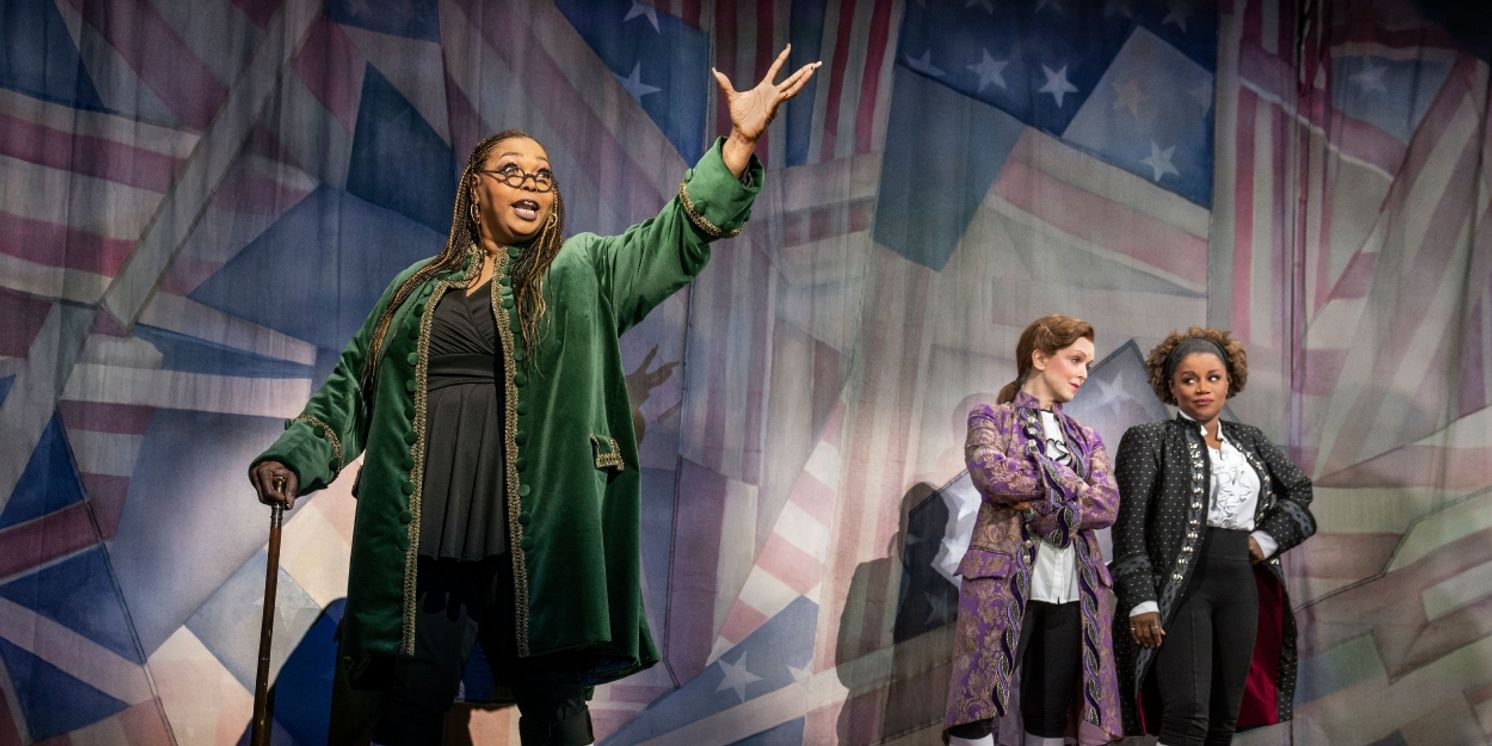Review: 1776 at CIBC Theatre is a Refreshing-Lee Modern Take on a Classic
Directors Jeffrey L Page and Diane Paulus deliver a masterful retelling enhanced by diverse casting

Virtually everyone growing up in the United States learns the story of our country's birth: The founding fathers, the struggle for independence from Britain, and the scourge of slavery that was shamefully part of our fledgling nation. 1776 gives us a deep dive into this history, complete with nuanced political debates and glimpses into the personal lives of the signatories of the Declaration of Independence.
The challenge for the revival of this 50+ year-old Tony award-winning play is how to re-introduce this well-known story in a way that connects with modern audiences- and to do this in the wake of revolutionary shows like Hamilton that also provide a re-telling of our nation's founding is no small task.
I was absolutely delighted to find that this revival is an example of a modern adaptation done right. The inclusive and diverse all-female enhanced the storytelling, and made you subtly ask yourself questions like "What if there were women and minorities in the room? How would I want the history books to remember me?" Unlike other modern retakes on a classic like the recent revival of Oklahoma!, this adaptation of 1776 is not edgy for edginess' sake. This new version of 1776 does what theatre has a long history of doing, playing with changeable elements (cast, set, costumes) to tell a story in a new way- all while the music and book remain unchanged.
This revival would be nothing without its superbly talented cast, each member intentionally bringing a unique personality to their character. The central figure, John Adams, was masterfully portrayed by an indefatigable Gisela Adisa. Her limitless energy, incredulity and precision never wavered once throughout the evening.
The echoes of "Does anybody care? Does anybody see what I see?" reverberate in my head even hours after the show's conclusion. Adams' partner in crime, the storied polymath Ben Franklin, was played by the hilarious Liz Mikel. Between delivering flippant delivery of quips at their opponents' expense and engaging in saucy rendezvous, Franklin is the steady voice of reason for the headstrong Adams. This dynamic duo played off each other superbly throughout the performance.
Early in the show, the lighthearted The Lees of Old Virginia sung by Richard Henry Lee was a perfect comedic number to put the audience at ease after a heated opening scene. Shawna Hamic's timing, confidence and charminglee easygoing nature had the audience in stitches. Playing the more famous Virginian was Nancy Anderson in the role of Thomas Jefferson. Anderson's performance was a masterclass in the art of subtlety: though this character has surprisingly few lines, Anderson's nuanced facial expressions and body language spoke volumes. A well-timed glance can say more than an entire soliloquy, a fact that is not lost on her. Finally, Anderson's talent with the fiddle was the cherry on top to a truly delightful performance.
Sweetly portraying Jefferson's wife Martha was Connor Lyon. Though a minor character, she brilliantly delivers the most romantic song in the show, He Plays the Violin. Lyon's soprano is sure to put a lump in your throat with her angelic exposition of this sweeping melody. Not only was the style of this song a refreshing change from the others featured in the show, but it is one of the few sung by a female-identifying character. Bravo, Lyon!
As the show progresses into Act II, the tension builds between those in favor of independence and those against. The wickedly talented Joanna Glushak in the role of Pennsylvania's John Dickinson led the minuet in Cool, Cool, Considerate Men in this crafty number. Glushak's deliciously precise diction and cunning tone made it impossible to keep your eyes off this character who is somehow simultaneously brazen and loyalist.
The tear-jerker Momma Look Sharp reminds us of the cost of independence: War, bloodshed, and devastating heartbreak. In this number the courier Brooke Simpson delivers the most gut-wrenching moments of the show, her incredibly raw belt is quintessential for the bleak anguish conveyed here.
Finally - there's Kassandra Haddock as South Carolina's Edward Rutledge. I already have goosebumps thinking about her Rendition of Molasses to Rum. Though her performance is captivating through the duration of the show, this haunting number brings the house down. Through this song, Rutledge calls out the hypocrisy of northern anti-slavery states who claim moral superiority- though their hands are not as lily-white as they'd like you to think. Haddock was totally and utterly mesmerizing in this role.
The set of 1776 features a fantastic array of variety. Though many of the scenes take place in a simple Congressional Hall, other scenes feature creative use of lighting projection against various scrims and backdrops. The intensity of the set matched that of the lyrics in Molasses to Rum, as the stage was lit blood-red all while images of molasses barrels piled sky-high surrounded the swirling action. The costumes were quite fitting, each member of Congress wearing a brightly covered overcoat complete with breeches and buckled shoes. I'm pleased that the hairstyles featured were as bold and feminine as the actors onstage, creatively not conforming to the males they portrayed.
1776 is not just for the history buff or the avid theatergoer: I believe it speaks to everyone who is even remotely interested in the great American experiment and the question of what it means to be free. Directors Jeffrey L Page and Diane Paulus deliver a masterful retelling enhanced by diverse casting, creating a work of art that's sure to win over a new generation of fans while challenging us to see our country's history in a new light.
1776 runs through March 12 at the CIBC Theatre. Tickets can be purchased here.
Reader Reviews
Videos

